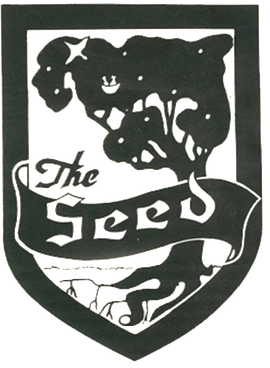The Seed (organization)
The Seed is a non-profit organization focused on sustainable agriculture, community development, and environmental conservation. Established in the early 21st century, The Seed aims to address global challenges such as food security, climate change, and biodiversity loss through innovative and community-driven solutions. The organization operates in various countries, providing resources, training, and support to local farmers, communities, and schools to promote sustainable practices and enhance livelihoods.
History[edit | edit source]
The Seed was founded by a group of environmentalists, agronomists, and social entrepreneurs who recognized the urgent need for sustainable development practices in agriculture and community management. The founders were motivated by the increasing threats of climate change, soil degradation, and loss of biodiversity, and the impact of these on global food security and poverty. Since its inception, The Seed has grown into a global network, partnering with local NGOs, government agencies, and international bodies to expand its reach and impact.
Mission and Vision[edit | edit source]
The mission of The Seed is to empower communities through sustainable agriculture and environmental conservation, thereby contributing to a healthier planet and improved quality of life for people around the world. Its vision is a world where communities are self-sufficient, resilient to climate change, and living in harmony with nature.
Programs and Initiatives[edit | edit source]
The Seed's programs are diverse and tailored to meet the specific needs of the communities it serves. Key initiatives include:
- Sustainable Farming Practices: Training and resources for farmers on sustainable agriculture techniques such as permaculture, agroforestry, and organic farming. These practices help improve soil health, increase biodiversity, and reduce dependency on chemical inputs.
- Community Development Projects: Initiatives aimed at improving livelihoods through sustainable development, including access to clean water, renewable energy projects, and sustainable housing.
- Environmental Education: Programs for schools and communities to raise awareness about environmental issues, promote conservation efforts, and encourage sustainable lifestyles.
- Biodiversity Conservation: Projects focused on preserving and restoring natural habitats, protecting endangered species, and promoting biodiversity.
Impact[edit | edit source]
The Seed has made significant contributions to sustainable development and environmental conservation. Its programs have led to increased agricultural productivity, improved food security, and enhanced resilience to climate change for numerous communities. Additionally, The Seed's efforts in education and advocacy have raised awareness about the importance of sustainability and conservation among the public and policymakers.
Challenges and Future Directions[edit | edit source]
Despite its successes, The Seed faces challenges such as limited resources, climate change uncertainties, and the need for scalable solutions. Moving forward, the organization aims to expand its programs, foster partnerships, and leverage technology to increase its impact. The Seed is also committed to advocating for policies that support sustainable development and environmental conservation.
See Also[edit | edit source]
Navigation: Wellness - Encyclopedia - Health topics - Disease Index - Drugs - World Directory - Gray's Anatomy - Keto diet - Recipes
Search WikiMD
Ad.Tired of being Overweight? Try W8MD's physician weight loss program.
Semaglutide (Ozempic / Wegovy and Tirzepatide (Mounjaro) available.
Advertise on WikiMD
WikiMD is not a substitute for professional medical advice. See full disclaimer.
Credits:Most images are courtesy of Wikimedia commons, and templates Wikipedia, licensed under CC BY SA or similar.
Contributors: Prab R. Tumpati, MD

